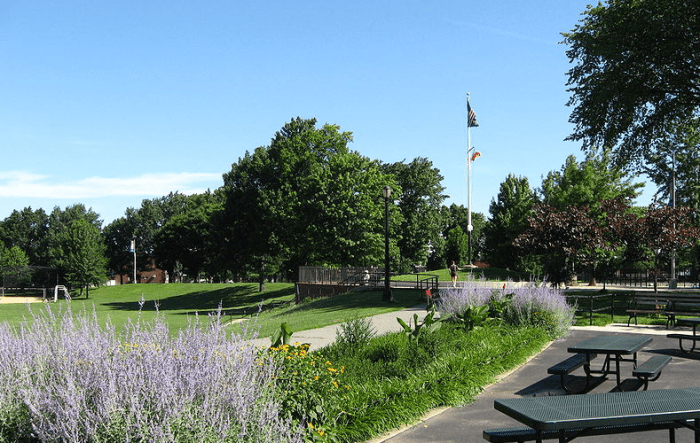“Our communities deserve better and need answers now.”
That’s the message Assemblywoman Catherine Nolan sent to the city’s Department of Transportation (DOT) after seeing the QNS/Ridgewood Times report about the slow progress made on the reconstruction of the bridge carrying Metropolitan Avenue and Fresh Pond Road over the Long Island Rail Road Montauk branch on the Ridgewood/Middle Village border.
In a Dec. 5 letter to DOT Commissioner Polly Trottenberg, Nolan cited our story in noting that the project “has been severely delayed” and that the contractor will likely not reach its “January 2018 deadline to complete the first phase of the project.”
Scheduled originally to start in July 2016, the reconstruction project was delayed six months over various issues. It finally got underway in January, cutting traffic lanes on Metropolitan Avenue and Fresh Pond Road in half to one lane in each direction.
Work was slowed again in the summer as Metropolitan Avenue was temporarily restored to two lanes in each direction as the nearby M line was closed for two whole months for reconstruction. Since Labor Day, Community Board 5 District Manager Gary Giordano told QNS in our most recent report, there’s been little discernible progress made on the top side of the bridge.
Nolan urged Trottenberg to conduct an immediate review of the project and advised that the agency that “if the contractor [Mugrose Construction] cannot complete the work, then … another RFP [request for proposals]” should “go out to choose a more qualified company that can actually do the work that they say they can do.”
She noted that the surrounding community has dealt with “severe traffic issues and a significant loss of revenue for the local businesses” since the project started, and that the current situation is “simply unacceptable.”
“The community accepted that this project needed to get done; however, the expectation would be that it would get done on time,” Nolan wrote. “The initial six-month delay, combined with the missed deadline for the first phase of the project, makes it even harder for our communities to accept that their quality of life is being respected.”



































